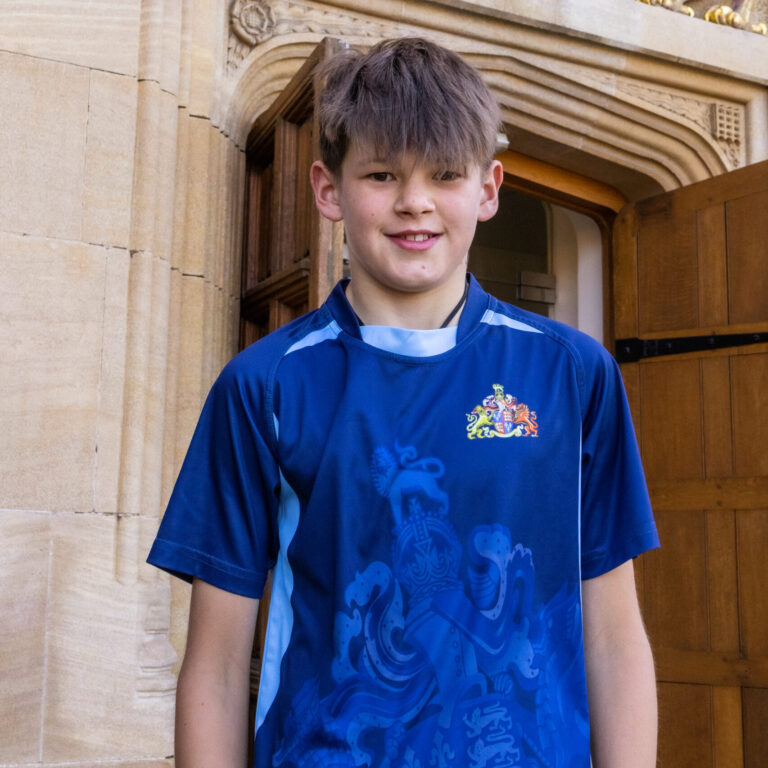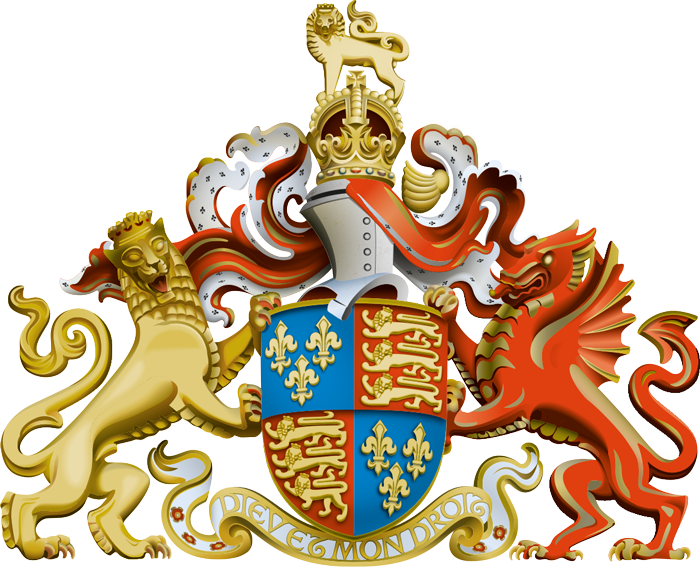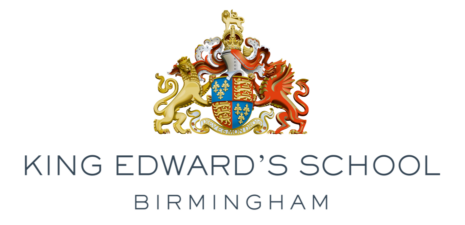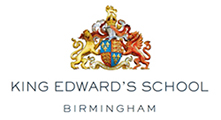PE, Games and Sports Science
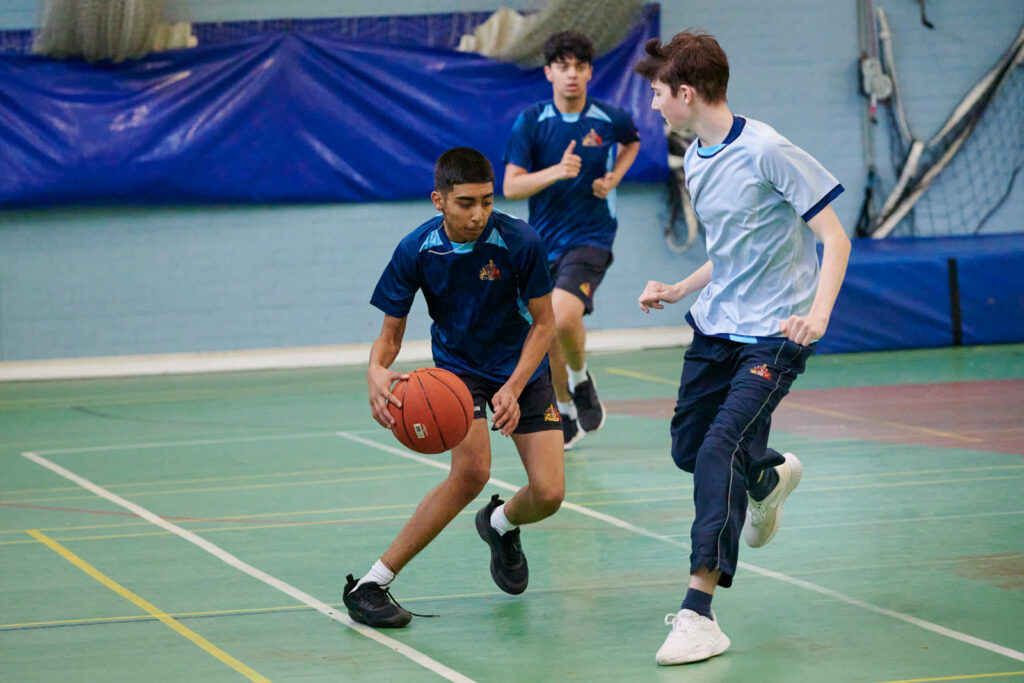
Physical education is a central part of life at King Edward’s School. Boys participate on a practical level throughout their time at school and it is an academic option in the Sixth Form.
In Year 7 boys have two curriculum PE lessons per week. One lesson is dedicated to swimming, in order to ensure confidence and competence in an essential life skill, whilst the other rotates through a programme of health-related fitness and introductions to a wide array of sports.
As boys progress through the school, curriculum PE changes to one lesson per week with the programme of study altering each half term. Swimming remains in the syllabus each year whilst the range of activities broadens.
Boys also receive a games session each week, where the focus is upon the main school sports of rugby, hockey, cricket and athletics, with each student receiving coaching to maximise his potential to excel and represent the school in one of the many sporting teams. All sports can be participated in further through the co-curricular activities programme and clubs are run for all abilities.
- Practical performance in three sports
- A written examination covering theory content
- A coursework task analysing and evaluating personal performance
Physical Education
A Level Physical Education is a demanding and rewarding course that is highly regarded by UK universities, including those in the Russell Group; it will prepare you for further study in sports science and will complement medical-related degrees. It will support university applications in a wide range of subjects including the sciences, social sciences (such as Psychology and Sociology) and humanities.
A Level PE is a varied course. Over the two years, you will do the following (amongst other things):
- Examine the frustration-aggression hypothesis and how this influences athletes’ performances
- Study the biomechanical principles of linear motion through Newton’s laws of motion, and then use this knowledge improve your own or others’ sporting performances
- Debate the ethics of performance-enhancing drugs
Investigate how advances in sports technology are influencing the production of Nike shoes.
The AQA specification has both a theoretical and a practical dimension. The theoretical side splits into seven areas:
- Applied Anatomy and Physiology
- Skill Acquisition
- Sport and Society
- Exercise Physiology
- Biomechanical Movement
- Sport Psychology
- Sport and Society and the Role of Technology in Physical Activity and Sport.
Sports, Exercise and Health Science
Sport has evolved so much in the last two decades that it is unrecognisable from the entertainment broadcast in World Cups, Olympic Games and National Championships at the turn of the century. British sport has adapted to meet the demands of an increasingly competitive environment, largely due to the introduction of Lottery funding, which has enabled elite athletes’ access to a wide support team all working towards maximising elite performance.
Sport is now a science that incorporates many components, from psychology and physiology to biomechanics and skill acquisition. It is this science that also provides a foundation for physical health and has significant relevance in everyday life. In a world where millions of people are physically inactive and afflicted by chronic ill health, the sport and exercise scientist should be equally proficient when prescribing exercise for the promotion of health and wellbeing.
As part of their IB Diploma, boys can study Sports, Exercise and Health Science (SEHS) at Standard or Higher Level. The course covers the core topics of: anatomy, exercise physiology, energy systems, movement analysis, skill in sport, and measurement and evaluation of human performance. Boys can also choose two options from: optimising physiological performance, psychology of sport, physical activity and health, and nutrition for sport, exercise and health. In addition, Higher Level pupils study the brain, the endocrine system, the effects of altitude and heat on performance, fatigue, the skin, and other topics. There is also an opportunity to plan and carry out experiments specifically targeted at assessing physiology/psychological performance in relation to sport.
Future careers
Sports Science is an amalgamation of several different disciplines and focuses primarily on the scientific principles behind exercise performance.
It combines branches of science, including physiology, psychology, biomechanics and nutrition, with business and management skills to produce graduates who are capable of careers in a range of industries. Due to this the students who pursue Sports Science at both IB and degree level have the skills to succeed in an array of disciplines.
Specific career opportunities include the fields of nutrition, exercise physiology, performance analysis, physiotherapy, clinical science, sports psychology and sports coaching.
Beyond the classroom
We have established valuable connections with both the University of Birmingham and University College Birmingham. These links have enabled us to regularly visit these institutions for insightful lectures and to utilise their state-of-the-art specialist equipment for testing. The department has organised regular trips to professional sports teams and invited guest speakers to deliver lectures on sports nutrition, strength training and conditioning.
Meet the Director of Sport
Mr Adams
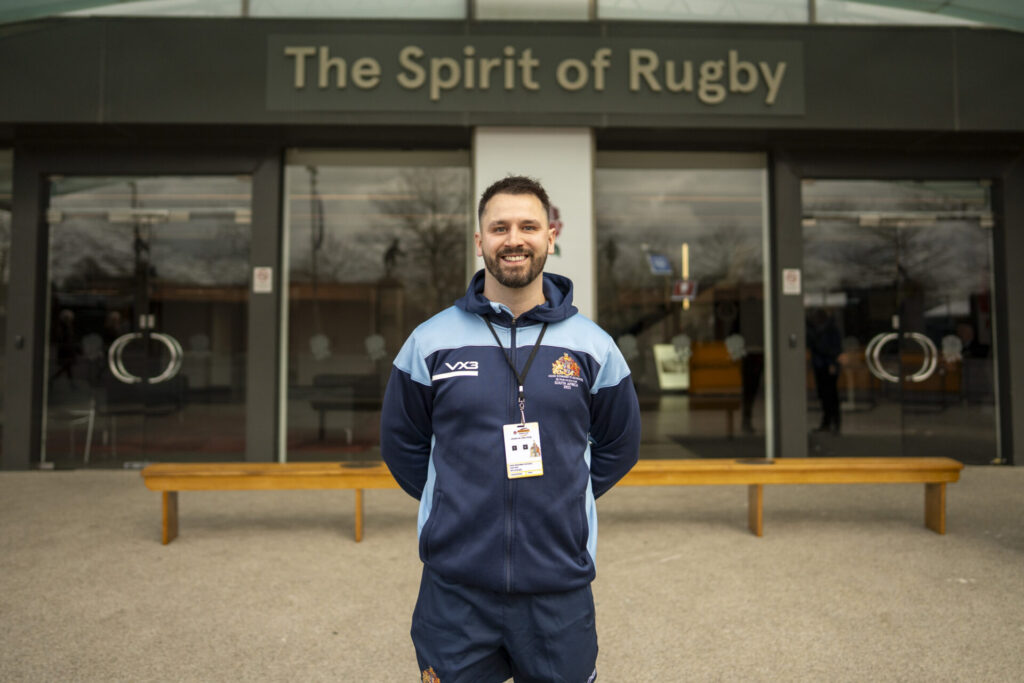
Meet the Head of Academic PE
Mr Macdonald
Mr Macdonald has been involved in elite sport for 30 years, including playing rugby for Moseley RFC in the Championship and officiating the sport in the Premiership and European competitions.
After graduating with a degree in Biology from the University of Birmingham, he became a teacher of Biology. He has worked in a range of schools in the Midlands area, from state to boarding. His passion for sport and human biology led him to a career in Sports Science, and he has been Head of Sport Science at King Edward’s School since 2020. Apart from his interest in almost all sports, his life is dominated by his two young daughters, food and travel.
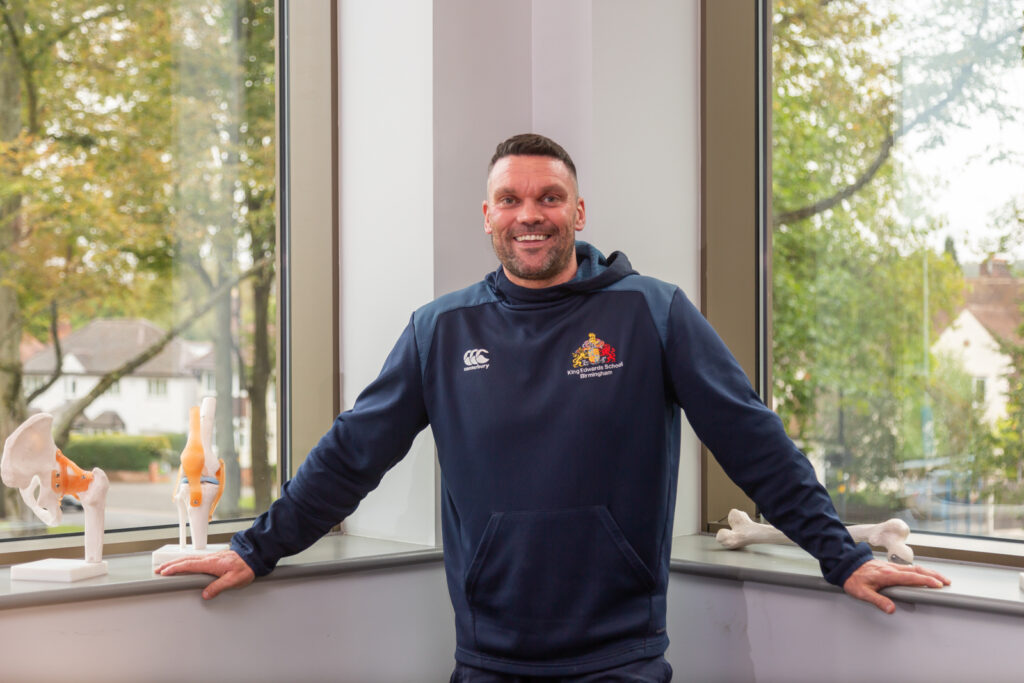
Meet the Head of PE (Acting)
Mr Caviezel Cox

“The sport here is amazing! I’ve had the chance to represent the school in rugby, hockey, tennis and cricket. The teachers really encourage you to play even if you haven’t played a sport before.”
Seb
